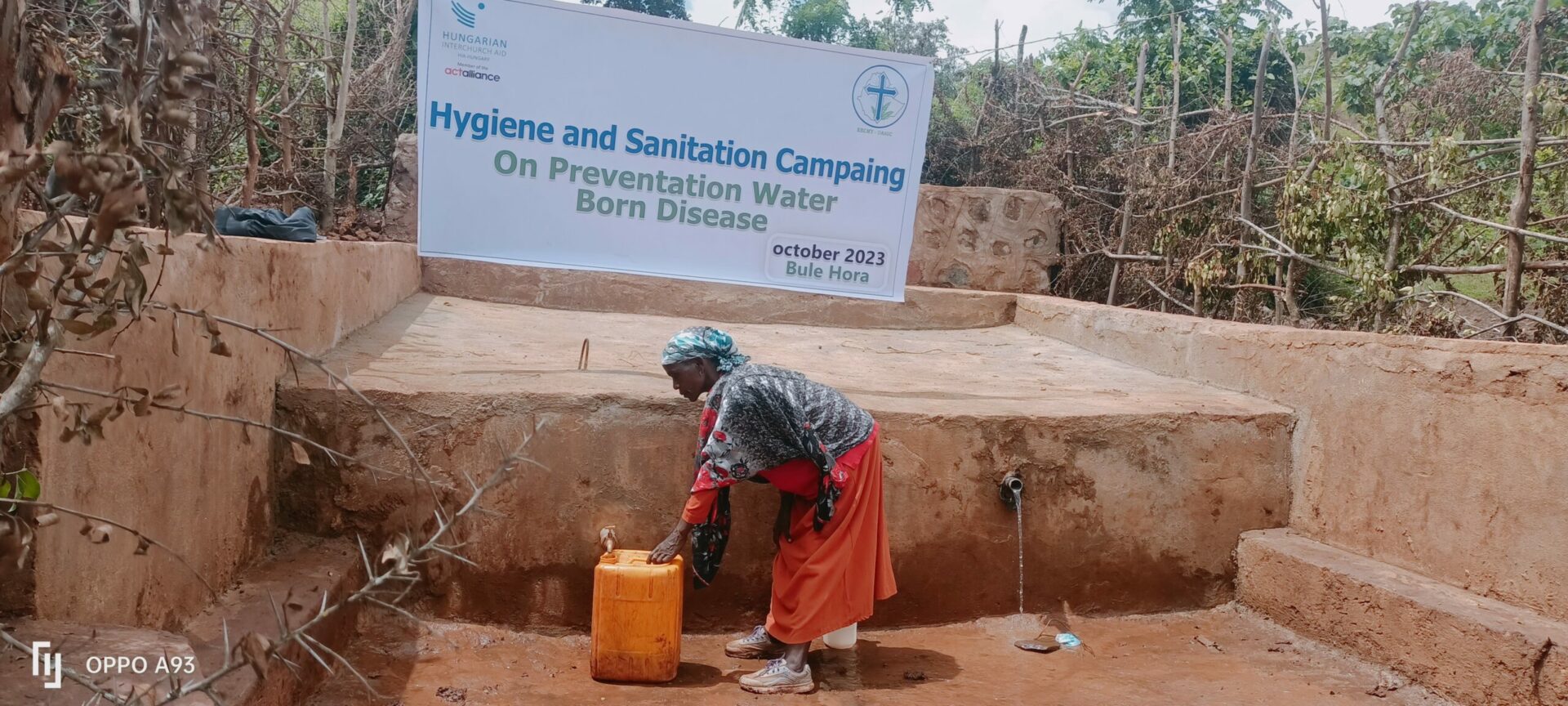This website uses cookies so that we can provide you with the best user experience possible. Cookie information is stored in your browser and performs functions such as recognising you when you return to our website and helping our team to understand which sections of the website you find most interesting and useful.
Quenching thirst for safe drinking water in Ethiopia
Sometimes there’s just too much, but in the past five years, it was mostly found lacking. Accessibility, conflict, potential health risks and co-users all add dimensions that dictate the way Hungarian Interchurch Aid (HIA) looks to improve the situation of struggling locals. Of course, we are talking about the alpha & omega of humanitarian interventions in Ethiopia: water. Read the first part of our report on HIA’s projects in Southern Ethiopia.
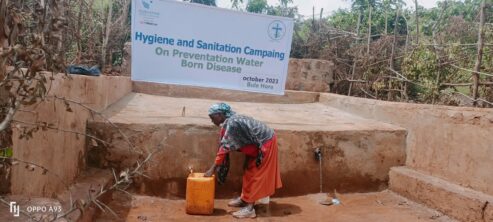
BULE ANO, WEST GUJI ZONE, OROMIA, ETHIOPIA. Descending from the lush agroforests of the Gedeo Zone, we arrive into the hilly Guji, an area where armed conflict is an everyday occurrence. While rain has been abundant this season, this is a most welcome change after 5 consecutive years of drought that has almost resulted in famine in the Horn of Africa. Participating in ACT Alliance’s response to the crisis in Ethiopia, HIA’s goal was to provide long-lasting solutions for communities struggling to access water – and through these interventions to create the right environment for further humanitarian development.
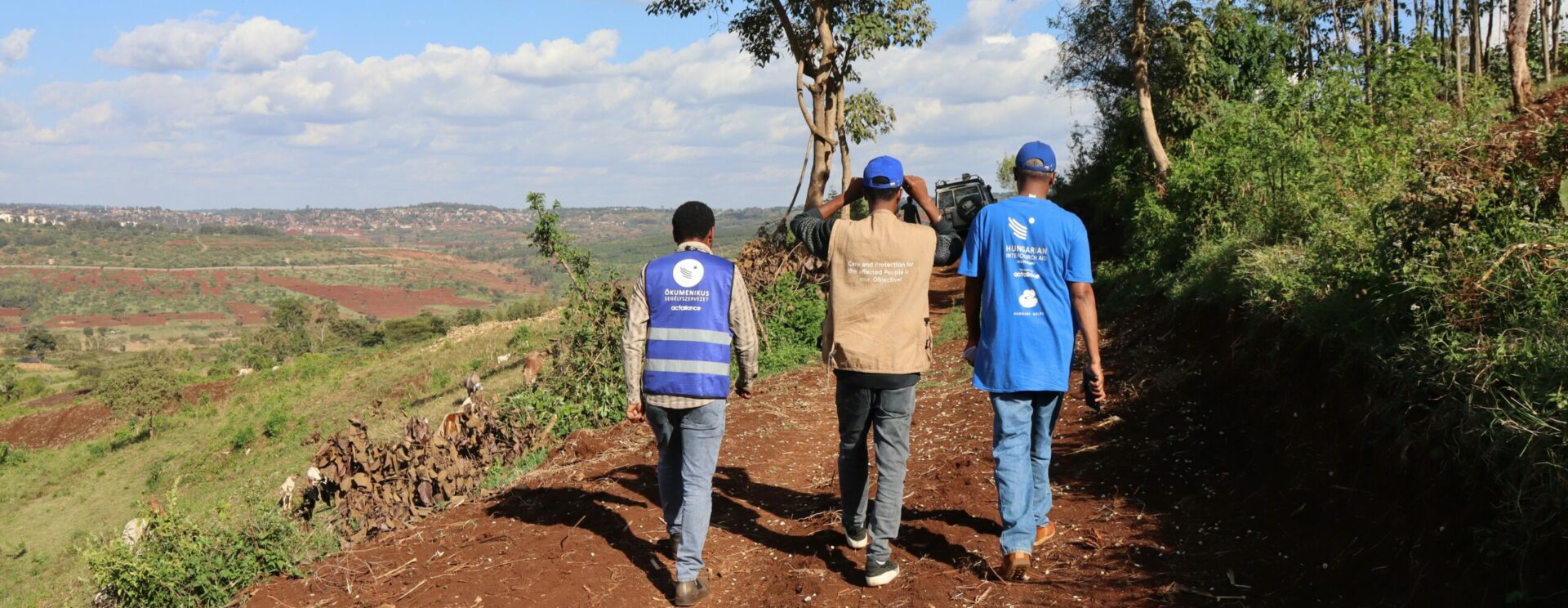
As a village located in the drylands characterised by the rolling hills, Bule Ano’s residents have a particularly hard time during the drought. Following needs assessments and consultation with local partner EECMY-DASSC, HIA has decided to renovate their water spring. As Makaroba – a man in his forties, who’s been elected by the community to lead the village committee on the development – explains to us: “It’s a scattered settlement, many walk an hour just to get here. At least thousand people and 200 cattle depend on it. With the renovation of the water scheme, we hope that both water output and water safety will increase.”

Adola has been working with the Bule Ano community for years now as the local EECMY-DASSC branch’s office director, and knows the struggles of locals all to well. “Before the intervention there was already water here, but it was seeping through the soil, and formed a couple of small ponds. During the rainy seasons they were unable to use it, as it is located in the main floodline” – he says. Unclean water – be it from contamination from flooding or from the joint use with livestock – was the driving force behind illnesses in the village, too.
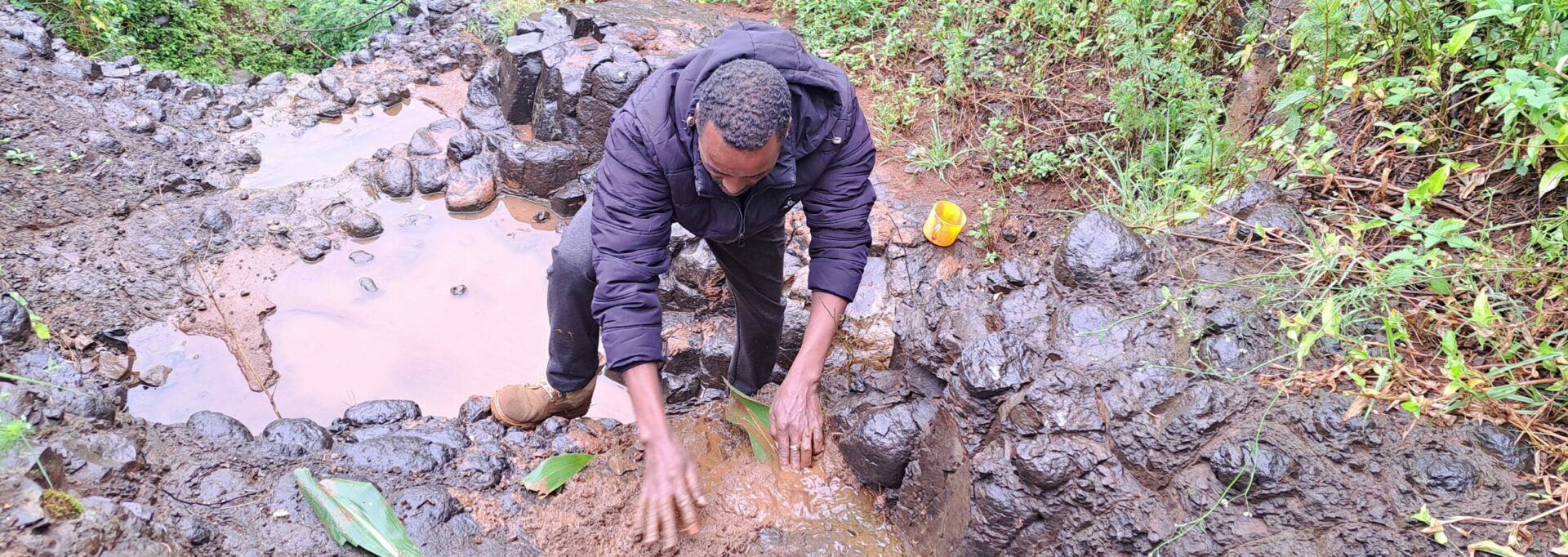
Makaroba affirms the previous difficulties. “The ponds were full of waterborne diseases. It’s a challenge to keep ourselves healthy if the spring is unprotected and its water unsafe.” Another issue was the inconsistency of the output of the spring. “The water we were getting from this source was just not enough for all of us, especially in dry periods. Everyone depends on it in our village. From children to the elderly, people and livestock, there’s no alternative” – he says.
The new scheme responds to the above difficulties as well. “We started off by excavating and constructing the basin of the future water source from concrete. Three different springs will accumulate water here for a steady output through the pipes. Since it will be closed off, pollution won’t be a problem anymore either” – says Adola, assuring the gathered villagers.
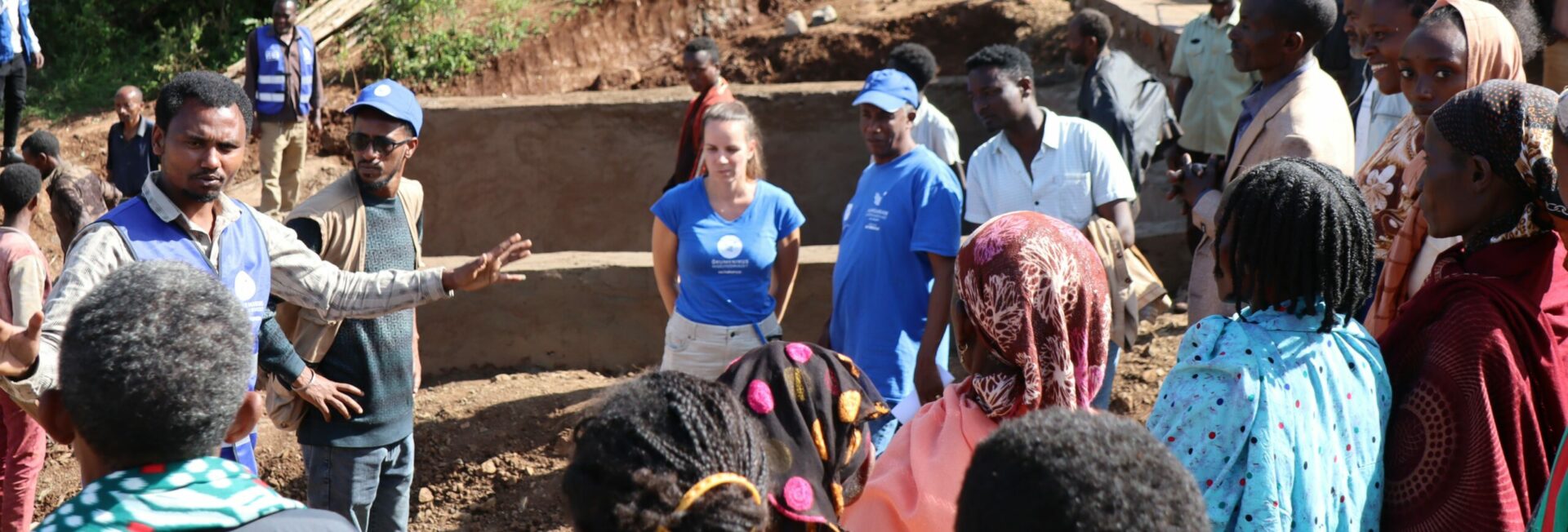
The importance of similar interventions cannot thus be overstated, as they lay a solid foundation for the community’s future health, nutrition and livelihoods. For the agro-pastoralists of the West Guji Zone, livestock carries a special value. Long-lasting droughts and inconsistent water supply have meant that they needed to sell their cattle, traditionally the main source of income and usually the most valuable assets of their households.
The monitoring visit to the spring has attracted a large number of community members, clearly, hopes and expectations are high. “After talking with the engineers and specialists sent by HIA, we’ve realised the ingenuity of the development. We’re proud and very thankful, the neighbouring villages don’t have anything like this – claims the head of the village, Shukata Adulla.
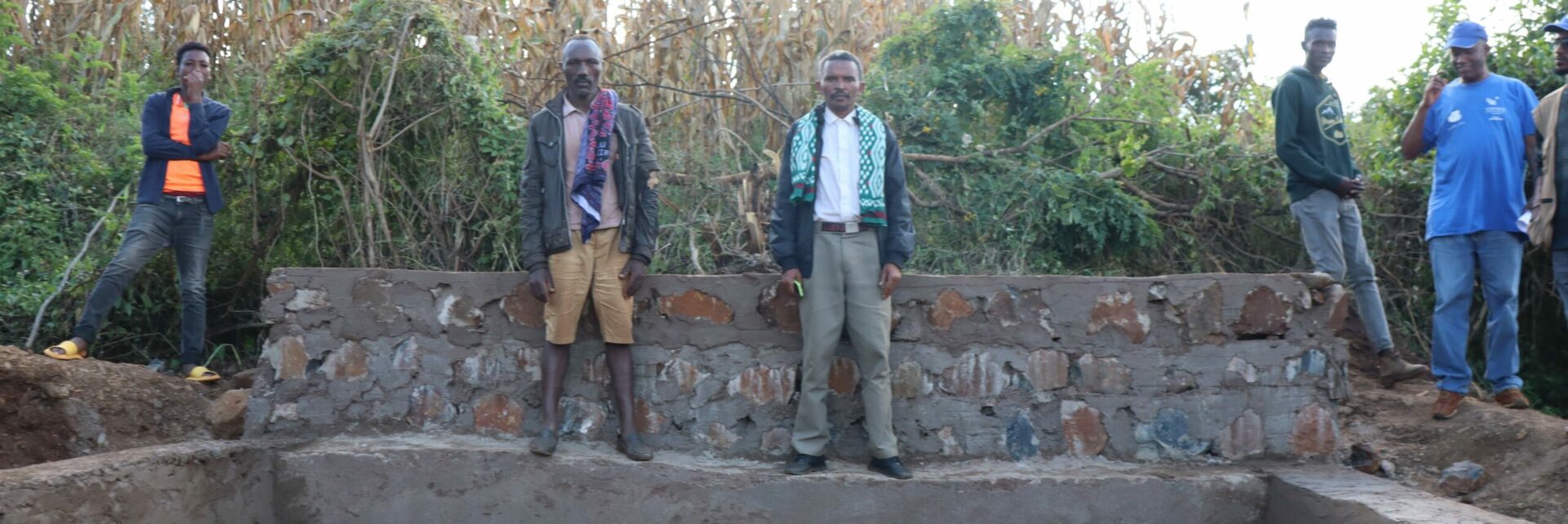
The need for safe and potable water remains one of the great challenges in Ethiopia’s rural south. With 60 to 80% of diseases attributed to limited access to safe water and sanitation, there is room to improve. However, by both protecting and collecting the springs in a basin for a steady and safe output, this HIA project became a blueprint for similar interventions all over the West Guji Zone. By supporting Hungarian Interchurch Aid’s work in Ethiopia, you enable us to bring life-saving, clean drinking water to many more disadvantaged settlements in the country.
